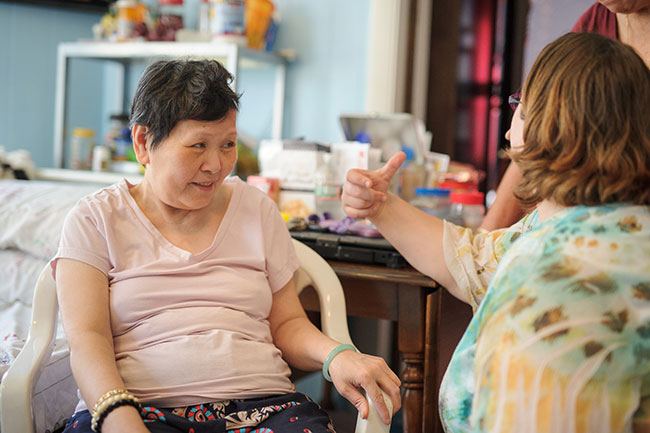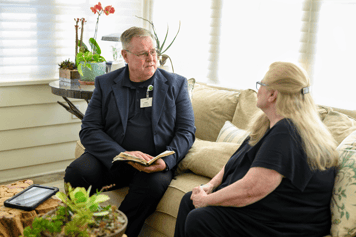Many people believe hospice is something for “other people” … or a service only for cancer patients … or even a building where patients spend their final days.
Sadly, these myths mean too many patients and families miss the true gift of hospice. Hospice is much more than care that is limited to the last few days of life or to a specific illness. Hospice helps anyone facing a terminal illness live out all the days of their lives with comfort and dignity and helps their loved ones deal with grief, sadness and meaning.
[action 1]
Here are common myths about hospice care:
Myth 1: Hospice means giving up hope.
Hospice helps people focus on what matters to them: living the best quality of life possible, sharing time and creating memories with loved ones, planning for a special trip or other goals. Hospice helps people with terminal illness and their families work through the emotions of pain, sadness and other feelings so they can make the most of all the days of their lives.
Myth 2: Hospice patients must stop all current treatments and cannot return to medical treatment designed to cure their disease.
Amedisys Hospice accepts clinically-eligible patients who are continuing medical treatments when these treatments are not intended to be curative or life-prolonging. A patient can be discharged from hospice if their health improves or their disease goes into remission. Patients have the right to choose to return to traditional care at any time and for any reason. Medicare, Medicaid, and most private insurance companies and HMOs allow readmission if a patient wants to later return to hospice care.
Myth 3: Hospice patients are automatically discharged if they live beyond six months.
The Medicare hospice benefit requires that patients are expected to live six months or less – but Amedisys Hospice can continue to serve patients as long as they remain eligible and the attending physician recertifies that the patient is terminally-ill.
Myth 4: Hospice is only for patients who have a few days to live or are actively dying.
Hospice benefits are generally for anyone expected to live six months or less as certified by a physician. Receiving hospice services early offers time to coordinate care, stabilize the patient’s medical condition, attend to emotional and spiritual issues and take care of other needs.






